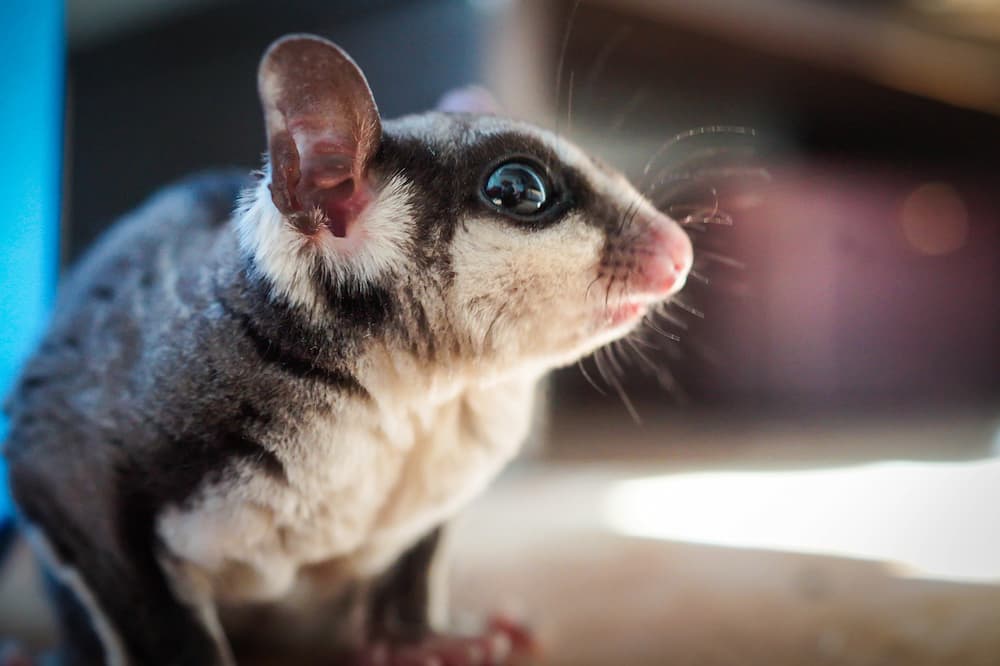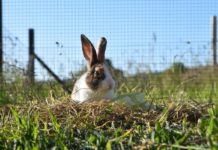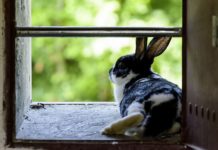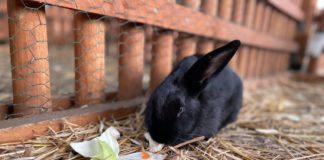Some sugar gliders love to chew and bite at all sorts of objects around the house, however, sometimes it can become excessive. You can help to prevent this behavior by providing your sugar glider with some physical and mental activities, along with some of the tips mentioned below.
Why Is My Sugar Glider Biting Everything?
To make sure you’re feeding your sugar glider the correct diet. Feeding your sugar glider, the wrong type of food can lead to health problems which can reduce the lifespan of a sugar glider as well as make them unhappy, leading to them chewing or biting excessively.
Stress and boredom are common reasons why a sugar glider may be biting all the time.
Since you cannot physically stop your sugar glider from biting at everything, make sure they have plenty of stimulation, such as getting enough exercise and a large enough enclosure to prevent the sugar glider from getting bored.
It’s recommended to let a sugar glider out of their cage every so often for playtime and exercise. Other factors, such as loud noises and sudden changes in temperatures, can stress a sugar glider out.
It’s also recommended to keep any other household pets separated from your sugar glider as they can be known to cause sugar gliders stress. Especially cats and dogs!
Can You Stop Your Sugar Gliders From Biting And Chewing?
The best way to prevent your sugar glider from chewing is by giving them some toys that can help to keep them busy and providing them with the correct healthy diet.
Sugar gliders that are stressed are likely to chew more. They could be stressed for many reasons. Some sugar gliders get stressed out by living in a dirty or noisy environment.
Do Environmental Factors Cause Sugar Gliders to Bite?
There are several common environmental factors that can cause sugar gliders to bite excessively:
Nurture
Some younger sugar gliders have been trained by their mothers to chew and bite.
Stress
- An unstable environment can put lots of stress on a sugar glider.
- If another sugar glider is harassing or bullying a sugar glider, this can cause lots of stress.
- Other factors, such as an unclean enclosure or lots of strange noises, can also cause stress.
Boredom
A sugar glider can make a habit of chewing or biting if they’re bored or don’t have enough to do.
It’s important to remember that sugar gliders are social animals. You may want to consider getting your sugar glider another sugar glider buddy if you feel like their bored or buy them more toys to keep them active during the hours that you’re not there to help keep them physically and mentally active.
Signs Your Sugar Glider Is Biting
It’s easy to know if your sugar glider starts to bite at random things. You should be able to see markings on different areas. The biting may be happening in more than one area.
A pet sugar glider needs the right diet and should get to eat insects, fruit, meat, commercial foods, and vegetables, along with a constant supply of fresh water. Not getting the correct diet can lead to stress.
Preventing Your Sugar Glider From Chewing Or Biting
- To stop your sugar glider from chewing or biting, you need to make sure they have the correct diet and water requirements.
- A great way to reduce a sugar glider from biting and chewing is to provide them with plenty of toys to play with.
- With anxiety and stress being the most common reason for a sugar glider to chew and bite, it’s crucial to find out the root cause of the problem.
- You should set a schedule for feeding and playing with your sugar glider as this can help to reduce stress. Sugar gliders live far better with a routine.
- Make sure your sugar glider’s environment is always clean and is large enough.
- If their surroundings are suddenly too noisy or busy, then consider moving your sugar glider’s cage to a quieter area.
- Sometimes a sugar glider will bite and chew when they’re bored. This could be because of not enough cage space or toys to play with.
- Sugar gliders are extremely sociable animals and are typically better off with the company of another sugar glider.
If you decide to adopt another sugar glider, it’s important to have a careful approach when introducing them to each other. It isn’t always straightforward or quick as they can be known to not get on at first.
There are no other practical ways to prevent a sugar glider from biting at things. The best you can do as a sugar glider owner is to determine if they are stressed, what’s stressing your sugar glider and get rid of the problem.
You need to give your sugar glider enough toys to help keep them busy. Hopefully, they will start interacting with their toys and stop chewing or biting at everything else.
Also, try moving their enclosure to a quiet place.
Training Your Sugar Glider To Not Chew
You can try to use some positive reinforcement. If your sugar glider heeds your warning of “No Chewing” and they cease to chew, praise them and say, “Good Job” giving them some scratches while praising them. Never shout at your sugar glider as it will only worsen the situation.
Make sure you have plenty of tasty foods and a variety of toys to help keep them occupied.








